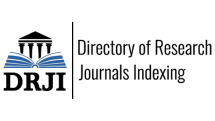AN ANALYSIS ON THE EPISODE STRUCTURE OF THE STORY OF ERCISLI EMRAH AND SELVI HAN AND THE DREAM MOTIF IN THE STORY
DOI:
https://doi.org/10.5281/zenodo.8097750Keywords:
Minstrel literature, folk tale, Ercisli Emrah, episode, dream motifAbstract
Among the genres of Turkish folk literature, folk
tales, which have a significant role in covering and
maintaining tradition, differ from other genres within
the understanding of folk poetry in the minstrel style
in terms of their mixed structure of poetry and prose,
and their lengthy volume. Folk tales, with these
characteristics, have attracted the attention of literary
researchers and have been the subject of numerous
studies.
With the remarkable efforts of folk literature
researchers, the existence of Ercisli Emrah has been
tried to be proven. Despite being confused with other
Emrahs who share the same pen name within the
tradition of minstrel literature for many years, recent
studies have solidified Ercisli Emrah's position in the
folk literature scene. Emrah distinguished himself from
other troubadours who were confused with him
through his use of pure language and a style devoid of
excessive ornamentation in his poems. One of the
most important proofs that he lived is the existence of
a popular folk tale that revolves around his life and the
inclusion of his poems within this tale. Every
evaluation made about Ercisli Emrah will be a
milestone in bringing him to life. In this respect, our
analysis is based on the tale of Ercisli Emrah and Selvi
Han, which depicts Emrah’s thorny journey for love.
The episode structure of the story, which is the
subject of our research, was first classified, then the
dream motif, which is one of the dominant elements in
terms of the tradition of minstrelsy, was analyzed as it
took place in the story.
Downloads
Published
How to Cite
Issue
Section
License
Copyright (c) 2023 Türk Dünyası ve Türkçe Öğretimi

This work is licensed under a Creative Commons Attribution 4.0 International License.










